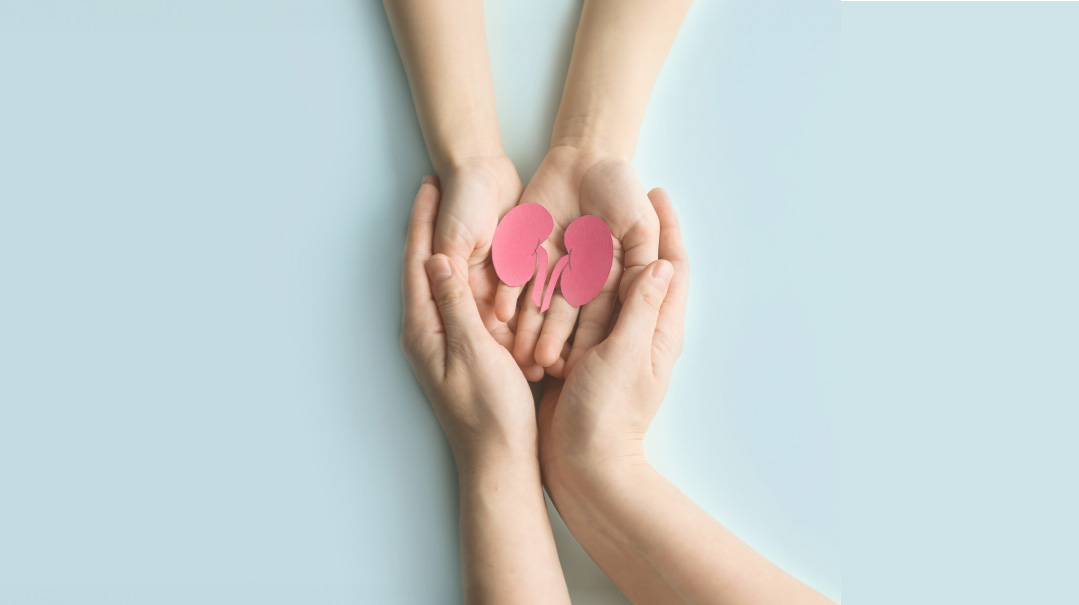Now That’s Giving!
| August 22, 2023Five women share their or their family’s experience donating a kidney

Rebbetzin Chana Sytner
wife of donor Rabbi Ari Sytner of Bergenfield, New Jersey
WE
were serving as the Rav and Rebbetzin in Charleston, South Carolina, when Ari decided to research fascinating topics that would draw a crowd for Shavuos night learning. He decided to speak about contemporary medical ethics, focusing on organ donation and the question of whether donating an organ was permissible, forbidden, or encouraged. Ari shared with the community what a great mitzvah it was to donate a kidney. But returning home, he felt like a hypocrite, encouraging his community to do something he would never do.
Ari wrestled with the question of donating his kidney and invited me out for coffee to tell me he was interested in becoming a kidney donor. I think he expected me to yell — which is probably why he invited me to discuss it in a public place.
Much to Ari’s surprise, I was actually receptive. He was the one on the fence seeking my guidance. I reassured Ari that he didn’t need to make a final decision, as there were many steps between being interested in donating and actually undergoing the surgery. I suggested we take it step by step, and if it was bashert and he ended up being a match for someone, we could make the decision to cross the finish line at that time.
Ari reached out to Chaya Lipschutz of Kidney Mitzvah, and Matnat Chaim in Israel. With their guidance, he completed the testing process at Montefiore Hospital in New York. Simultaneously, we spoke to our morei derech, sought their input, and received brachos and spiritual support. I put in my hishtadlus by speaking to our health and life insurance companies to make sure our family would be protected in case chas v’shalom anything bad happened.
Ari was matched with an Israeli woman in her forties: Ronit, a single mother of three children, who had watched her own mother die of kidney disease, and was now in decline from the same disease herself. Ronit had been searching for a kidney for years, reaching out to numerous organizations which declined her application because she wasn’t religious. She was losing hope, as time was running out for her.
Before committing to undergoing the surgery, we discussed the process with our children. Our oldest children were only 11 and seven at the time. When Ari first spoke to them about the possibility of donating a kidney, they didn’t want him to do it, for fear he would die. But when Ari explained that he would be saving the life of a single mother, they had a change of heart and said, “Yes, you should do it! Because if you die, we’ll be sad, but we still have Mommy. But if Ronit dies without a kidney, her children will be orphans.” The fact that my young children were able to appreciate the value of saving another person’s life was inspiring.
When our families learned of our decision, they were worried. We told them of our belief that a person leaves this world at a pre-determined time, and if that day was Ari’s time to die, it would happen — whether he had the surgery or not. We reassured them that we’d done our due diligence medically, financially, and halachically and were confident with our decision.
Oops! We could not locate your form.






